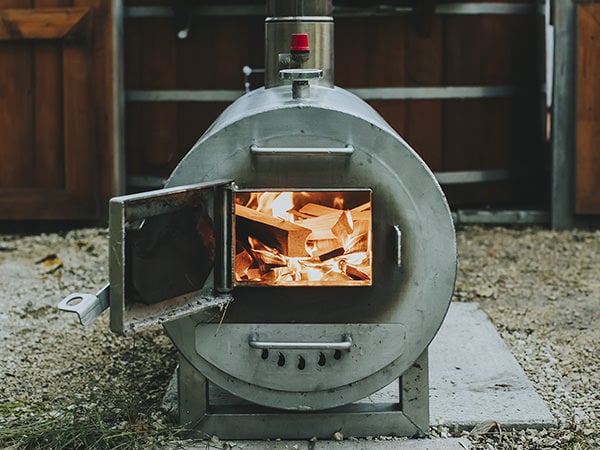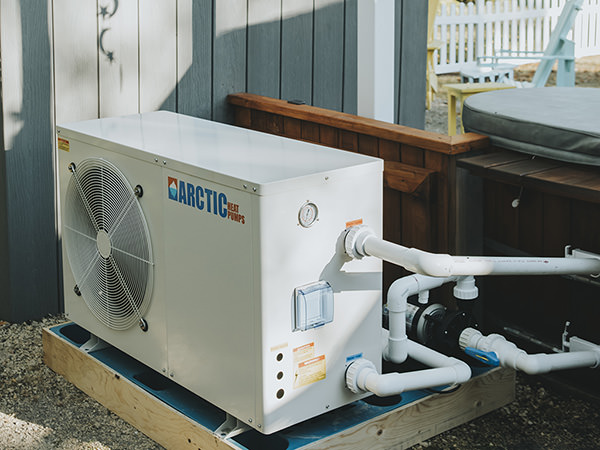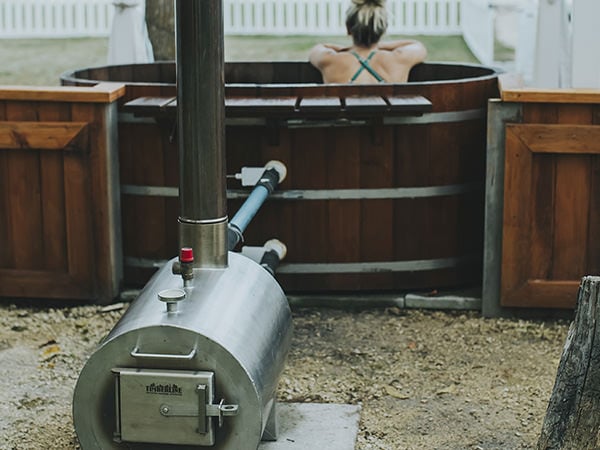
Hot tubs are the ultimate relaxation experience, offering a peaceful retreat from the stresses of daily life. But to fully enjoy your cedar hot tub, you need a reliable hot tub heater. With various options available—including electric, gas, heat pump, and wood-fired heaters—choosing the right one can seem overwhelming. In this blog post, we’ll explore the different types of hot tub heaters, their benefits, and how to select the best one for your cedar hot tub.
Why a Good Heater Matters for Your Cedar Hot Tub
When you invest in a cedar hot tub, you’re not just purchasing a beautiful, natural addition to your backyard; you’re also investing in relaxation and wellness. However, without an efficient hot tub heater, your experience can be less enjoyable. A good heater ensures that the water temperature is always perfect, enabling you to unwind after a long day.
Benefits of Cedar Hot Tubs
Cedar hot tubs are renowned for their natural aesthetics and durability. The cedar wood offers a warm aroma and is naturally resistant to decay, making it an ideal choice for outdoor settings. However, to maximize your hot tub experience, you need to consider the type of heater that will work best for your needs.
Types of Hot Tub Heaters
1. Electric Hot Tub Heater
Electric hot tub heaters are one of the most common choices for heating cedar hot tubs. They operate by using electricity to heat the water directly through a heating element.
Benefits:
- Ease of Use: Simply set the desired temperature, and the heater does the rest.
- Consistency: Electric heaters provide a stable and consistent heat, making them ideal for regular use.
- Energy Efficient: While they may have higher upfront costs, they tend to be energy-efficient for small to medium-sized hot tubs.
2. Gas Hot Tub Heater
Gas hot tub heaters use propane or natural gas to heat water. They are ideal for those who want to heat their hot tub quickly.
Benefits:
- Fast Heating: Gas heaters can raise the temperature of your hot tub water quickly, making them great for spontaneous dips.
- Cost-Effective: In some regions, natural gas can be cheaper than electricity, which can lead to savings on energy bills.
- Flexibility: Suitable for larger hot tubs that require a lot of heat.
3. Heat Pump Hot Tub Heater
Heat pump hot tub heaters are an energy-efficient option that works by extracting heat from the air and transferring it to the water. Learn more about air-to-water heat pumps.

Benefits:
- Energy Efficient: Heat pumps consume less energy compared to electric and gas heaters, making them eco-friendly.
- Cost Savings: While they have a higher initial cost, their long-term energy savings can be significant.
- Environmentally Friendly: Ideal for those looking to reduce their carbon footprint.
4. Wood-Fired Hot Tub Heater
Wood-fired hot tub heaters use wood as a fuel source to heat the water. This traditional method has gained popularity for its rustic charm and efficiency.

Benefits:
- Natural Experience: The experience of using a wood-fired heater complements the natural beauty of a cedar hot tub.
- Cost-Effective: Using locally sourced wood can be cheaper than gas or electricity.
- Eco-Friendly: Reduces reliance on fossil fuels, making it an environmentally conscious choice.
Factors to Consider When Choosing a Hot Tub Heater
- Size of Your Cedar Hot Tub
The size and specifications of your hot tub is a critical factor in determining the best heater. Larger hot tubs require more power to heat the water effectively. Be sure to choose a heater that can accommodate the volume of water in your cedar hot tub.
- Usage Frequency
Consider how often you plan to use your hot tub. If you enjoy spontaneous dips, a gas heater might be more suitable due to its quick heating capabilities. On the other hand, if you plan to use it regularly, an electric or heat pump heater may be more efficient.
- Energy Source Availability
Your choice may also depend on the energy sources available to you. If you have easy access to natural gas, a gas heater might be more convenient. If electricity is more readily available, an electric heater would be a logical choice.
- Budget
Initial costs and long-term operating costs vary significantly between heater types. Wood-fired heaters may have a lower initial cost – but consider the cost of wood and maintenance. Electric and gas heaters often require a larger upfront investment, but can offer long-term savings in efficiency.
- Environmental Impact
If sustainability is important to you, consider a heat pump or wood-fired heater. These options are generally more eco-friendly for hot tubs, and can help you reduce your carbon footprint.
Conclusion
Choosing the right hot tub heater is essential for maximizing the enjoyment of your cedar hot tub. Each heating option—electric, gas, heat pump, and wood-fired—offers unique benefits to cater to different needs and preferences. By considering factors such as the size of your hot tub, frequency of use, available energy sources, budget, and environmental impact, you can make an informed decision that enhances your hot tub experience.
Investing in a quality hot tub heater ensures that your cedar hot tub remains a source of relaxation and rejuvenation for years to come. No matter which heating option you choose, you’re one step closer to creating the perfect oasis in your backyard. Enjoy your time soaking and unwinding in your cedar hot tub!

